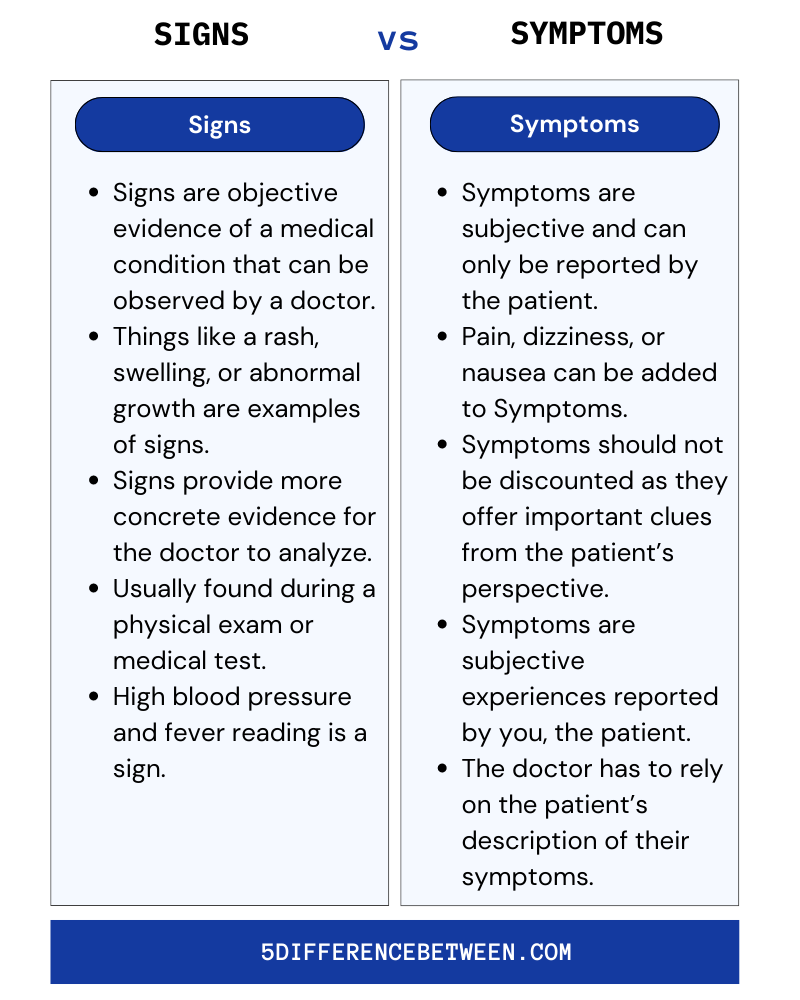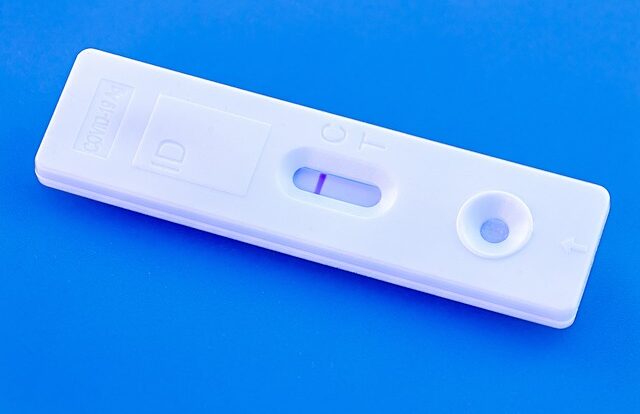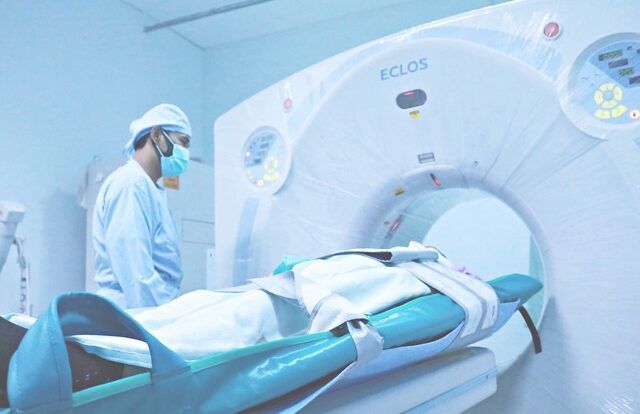Paying attention to both signs and symptoms helps doctors determine what’s really going on so you can get the right treatment and feel better faster.
What Are Signs? Objective Evidence of a Disease or Condition
Signs are objective evidence of a medical issue that can be detected by a doctor during an exam. Things like a skin rash, swelling, or abnormal vital signs.
Also Read > Difference Between Illness and Disease
When you go to the doctor because you don’t feel well, you’ll describe your symptoms. The doc will then examine you for any signs of what might be causing those symptoms. For example, if you complain of chest pain (a symptom), the doctor will check your blood pressure and heart rate (signs) to determine if it’s due to a heart problem or something else.
Some common signs a doctor may check for include:
- High blood pressure or irregular heartbeat
- Swollen lymph nodes
- Abnormal reflexes
- Jaundice (yellowing of the skin)
- Swelling in the legs or abdomen
While symptoms can be a clue as to what’s going on, signs are often needed to confirm a diagnosis since symptoms alone can sometimes be misleading. Many serious conditions don’t cause any symptoms at first, so routine medical checkups where doctors check for signs are important for catching problems early.
The key thing to remember is that signs are detectable, objective evidence, usually found during a physical exam or medical test.
What Are the Symptoms? Subjective Evidence Reported by Patients
Symptoms are what you actually experience when you’re not feeling well. They’re subjective, meaning only you can report on them accurately. Some common symptoms include:
- Nausea, vomiting, diarrhea or constipation. Anything that seems off with your digestive system.
- Fatigue and lack of energy. Feeling excessively tired even after rest.
- Pain or aches anywhere in your body. Headaches, cramps, joint pain, etc.
- Difficulty sleeping or changes in sleep. Trouble falling asleep or staying asleep, sleeping too much or too little.
- Changes in mood or mental state. Feeling depressed, anxious, irritable or just not yourself.
The key thing about symptoms is that they’re specific to you and can vary from person to person. Two people with the same condition may experience completely different symptoms. Your symptoms are your body’s way of signaling to you that something isn’t right, so you should never ignore them.
While symptoms provide clues, a doctor is needed to determine the underlying cause. Your physician will evaluate your symptoms along with medical tests like blood work, imaging scans or biopsies to make an accurate diagnosis. They can then recommend an appropriate treatment plan to help you start feeling like yourself again.
The bottom line is, you know your body best. See your doctor right away if you notice any unusual or persistent symptoms so you can get the care you need. Your health and well-being should always come first.
Signs Vs Symptoms

Understanding the distinction between signs and symptoms will help you better communicate with your doctor so they can make an accurate diagnosis and develop an effective treatment plan tailored to your needs. Be prepared to report any symptoms you have been experiencing, even if there are no clearly observable signs, to get the full clinical picture.






